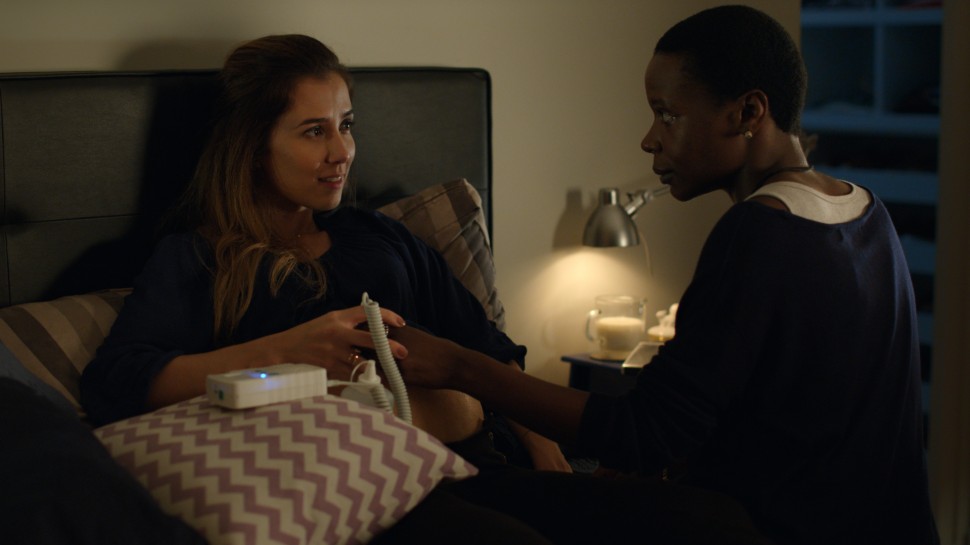
Good Manners
(As Boas Maneiras)
With Isabél Zuaa, Marjorie Estiano, Miguel Lobo.
Brazil/France/Germany , 2017, DCP, color, 135 min.
Portuguese with English subtitles.
DCP source: Distrib Films
Juliana Rojas and Marco Dutra met in college and bonded over, among other things, their love of diverse genres of cinema. Good Manners, their second feature together after Hard Labor (2011), is a terrifying melodrama with science fiction, political and musical elements, its concept originating in a dream Marco had of two women living in an isolated house, breeding a phantom baby. A loose version of a werewolf myth, the film is rife with the sensibility of Tourneur, set within an extraordinary futuristic city and the scenery of São Paolo. Ana is an upper-class Latin American woman, pregnant, alone and ostracized by her family, and Clara is a nurse, hired by Ana for around-the-clock medical assistance. Ana is white, Clara is Black. Ana lives in the center, Clara in the periphery. As the film progresses, the dualities between these women multiply, doors open and tensions fester. The full moon kickstarts dramatic transformations that subvert established societal orders. Good Manners, full of allegories about the nature of gender, is a terrifying urban fable, with precise political and social critiques.
PRECEDED BY
-
Toys (Juguetes)
Directed by María Luisa Bemberg.
Argentina, 1978, DCP, black & white, 12 min.
Spanish with English subtitles.
DCP source: Museo del Cine de Buenos Aires
“What will you do when you grow up?” The question motivates this short film, which was directed by María Luisa Bemberg in Argentina after the 1976 coup, during the country’s incipient dictatorship. Seventy girls and boys, between nine and ten years old, are asked this question while visiting the toy exhibition at the Rural Fair of Buenos Aires. The girls answer, “nurses and teachers.” The boys answer, “engineers, lawyers, ship captains and doctors.” Bemberg said about this film in an interview, “The girls think about getting married, and in many cases they choose careers which are poorly paid — those of teacher and nurse. Not doctors or professors, [they choose to be] stewardesses but not aviators.” Accompanied by the cinematography of Chango Monti, Bemberg observes and demonstrates the toys the children are offered at the fair, which provide a window into cultural conditioning, the restrictions placed on their education and creativity, systemic discrimination and the ways they internalize their lack of autonomy. Toys is a rigorous, arresting testimony on traditional gender roles still present today.
A director and screenwriter, María Luisa Bemberg began as a theatrical entrepreneur founding the Teatro del Globo in Buenos Aires. She studied under Lee Strasberg in New York and eventually founded her own film production company (GEA Cinematográfica) together with the production company Lita Stantic. For many years, she was a scriptwriter for other directors until Momentos (1981), her first feature film. She won numerous awards and her films made a notable international impact, particularly with Camila (nominated for best foreign film at the Oscars in 1984) and Yo la peor de todas (1990, about Sor Juana Inés de la Cruz). She was a tenacious activist for women's rights and one of the founders of the Argentine Feminist Union.
















